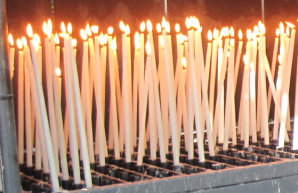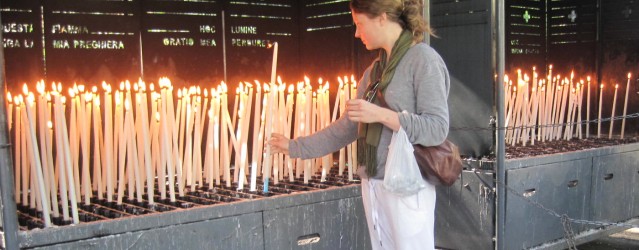It was the 16th century English poet, John Donne, who wrote “He who has no time to mourn has no time to mend.” I have often used these words in grief training sessions with the emphasis being on the importance of grief work in order to acknowledge the depth of pain related to love lost.
Our mending from tragedy and trauma is through grief and mourning, but the truth is that we never mend to be exactly the same again. Our lives are forever changed by our major life experiences. That is not to say that our lives become depleted following tragedy.
 It is by going through the hard and painful journey of grief that we learn much about ourselves, and as a result, can arrive a place of greater peace and understanding in our lives. Being in the depths of grief is a place where none of us hopes to dwell, yet it is the very place that holds our greatest teaching, opening the door to greater healing, self-knowledge, compassion and wisdom. In that regard, we not only mend through grief and mourning, we become enriched through the experience.
It is by going through the hard and painful journey of grief that we learn much about ourselves, and as a result, can arrive a place of greater peace and understanding in our lives. Being in the depths of grief is a place where none of us hopes to dwell, yet it is the very place that holds our greatest teaching, opening the door to greater healing, self-knowledge, compassion and wisdom. In that regard, we not only mend through grief and mourning, we become enriched through the experience.
We can notice Donne’s wisdom at the personal level: mending through mourning our loss; and it is through this great courage, I believe, that we can become better people. We become changed as a result of feeling personally affected by hardship and loss and having the courage to face the pain and hurt.
I am inclined to think that it is this very same response within us that is required for any significant change to occur when it comes to the shortcomings and losses in our society. It seems to me that it is only when we mourn the pains and hurts in our community that we will have the opportunity to mend these conditions. Failing to be deeply affected, as in mourning, allows us to remain detached. Again, it takes courage to mourn and to be deeply moved: it is far easier to turn a blind eye and not be touched by the hardship and difficult experiences of others.
We know how easy to distract ourselves and to remain unaffected about the growing rate of poverty in our community, especially when it does not directly affect us, or about the plight of those seeking asylum from torture and other forms of violence. How easy is it to say “this is not my issue” and then to switch off?
Of course it is not possible, nor helpful to become personally affected by all the injustices in the world, but perhaps I can do my bit.
Our social and economic structures will continue to maintain the status quo for as long as our leaders and those in power remain detached from the issues at ground level, and for as long as the majority in the community fail to have the courage to mourn the injustices in our society. The systems that allow the rich to become richer whilst the poor grow in numbers I feel will never be challenged, nor mended, if no one mourns the injustices.
“He who has no time to mourn has no time to mend” are words of wisdom far greater than “he.”
 If we as members of the human family fail to be deeply affected by systems that maintain injustices towards other family members, then we will most likely fail to find any way to mend the deep hurt that pervades our community and we will miss the opportunities that arise through mourning, to improve the systems in order that greater justice and harmony may prevail.
If we as members of the human family fail to be deeply affected by systems that maintain injustices towards other family members, then we will most likely fail to find any way to mend the deep hurt that pervades our community and we will miss the opportunities that arise through mourning, to improve the systems in order that greater justice and harmony may prevail.
To keep up to date with Margaret’s articles and blogs, click HERE and enter your email address in the Subscribe section on the page, and click on the Go button. You will receive an email to confirm your subscription and you will need to click on the link in the email you receive in order to finalise your subscription.

Speak Your Mind